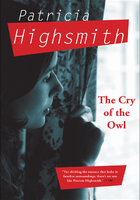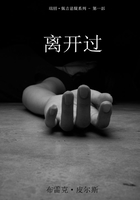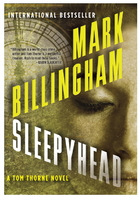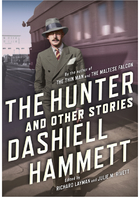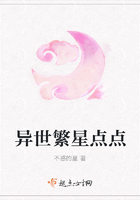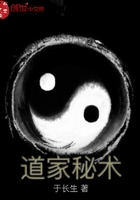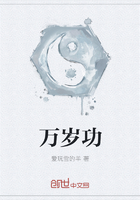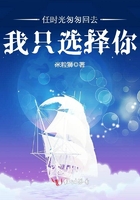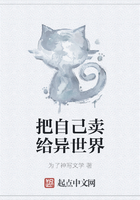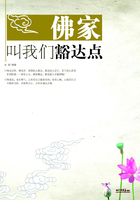I
Endgame was originally written in French, as Fin de partie (1957), and subsequently translated into English by Beckett himself. While En attendant Godot, which brought Beckett fame in 1953, flowed as a distraction from the more taxing business (as he saw it) of prose composition, its successor was born slowly and painfully. Waiting for Godot had created a revolution in theatre, forcing leading critics like Kenneth Tynan to 're-examine the rules which have hitherto governed the drama; and, having done so, to pronounce them not elastic enough'.[1] How to follow up such a play? Beckett never repeated himself and never yielded to the appetite for reassuringly familiar forms and styles. Yet the need to find a new dramatic idiom proved testing. Especially so at a time when, after his great post-war creative flourishing (that included Waiting for Godot, Endgame and his trilogy of novels, Molloy, Malone Dies, The Unnamable), Beckett found himself in a creative impasse.
There are dramatic situations resembling Fin de partie in Beckett's notebooks from as early as 1950, but he began substantial work on the play in late 1954 and early 1955. During this time he was also attempting to translate Malone meurt (Malone Dies) and L'Innommable (The Unnamable) into English, and dealing with early productions of Waiting for Godot. Significantly, he also made a foray into dramatic mime, which may have helped him out of the creative bind. Acte sans paroles (Act Without Words) was written in 1955 for the dancer Deryk Mendel, who had solicited scenarios from a number of authors including Adamov, Beckett and Ionesco. John Beckett, the cousin of the author who had recently stayed with him in Paris, was asked by Beckett to provide the musical accompaniment. Beckett's attraction to mime may have derived in part from his youthful interest in silent film, but it also surely stems from his attachment to shape, movement, repetition, precision and silence in the theatre. For one who made the failures of language a cardinal theme, the allure of mime is self-evident. Certainly we can see the mimic influence in the protracted dumbshow at the start of Endgame, when Clov prepares the scene by removing the sheets and uses the ladder to survey the world outside.
Beckett returned to his work on Fin de partie in early 1956, finishing a two-act version in February, but was not satisfied with it. A single, much longer act would more intently communicate an atmosphere of depletion, entropy and claustrophobia. The plan to stage the play together with Acte sans paroles in the Marseille Festival of the Avant-Garde in the coming August spurred him on. During April and May he reworked it closely, condensing it into one act and building in intricate variations and repetitions. On 21 June 1956, Beckett wrote to his American director and friend, Alan Schneider: 'Have at last written another, one act, longish, hour and a half, I fancy. Rather difficult and elliptical, mostly depending on the power of the text to claw, more inhuman than Godot.'[2]
This 'inhuman' quality derives from the terrible strictures of Endgame, spatial and temporal. The physical disabilities and mutilations of the characters mean that they cannot move freely, but the 'something' that is taking its course suggests they are also trapped in a deterministic or mechanical system. The fellow-feeling and flickers of compassion that uplift the bleak outlook of Waiting for Godot are, like so much else, in painfully short supply in Endgame. The relationships in Endgame, apart from one or two moments of geriatric romance between Nagg and Nell, are caustic and embittered. This is a play that is costive, scrupulous, remorseless, and seeks to articulate a vision whose only consolation, apart from its bitter humour, is its refusal to evade, distort or beguile.
In the event it was completed too late for the Marseille Festival to grant adequate rehearsal time. Both plays were withdrawn from the Festival and the search for a theatre in Paris began. Despite Beckett's success with En attendant Godot, this proved a greater challenge than might have been expected. A subvention had enabled production of the first play, but the commercial exigencies of theatre meant that, even in Paris, experimental drama could frighten theatre managers. As Beckett put it in a letter to his friend Thomas MacGreevy, 'With Godot after all, we had a State grant of 750,000 and now nothing but a gloomy graceless act, a complicated mime, and nos beaux yeux [our handsome eyes].'[3] Various Parisian theatres refused the play, and an arrangement with the Théatre de l'Oeuvre fell through at the last moment. In an unusual twist for a play in French, the première of Fin de partie took place in London at the Royal Court Theatre on 3 April 1957 together with Acte sans paroles. Roger Blin, the French director and actor who had championed Waiting for Godot and to whom Endgame is dedicated, directed and played Hamm.
This initial production was generally received with hostility and bemusement. Even Kenneth Tynan, a prominent advocate for Godot, found its relentless bleakness forced and unconvincing. Many other British critics, apart from the perceptive Harold Hobson in The Sunday Times, were peevish about the seeming absence of hope. Pairing the play with Acte sans paroles seemed, in retrospect, to have been a mistake; Tynan acknowledged in his review that his response to Fin de Partie had been skewed by the 'facile pessimism' of the mime, which includes a player reaching in vain for a flask of water lowered from above only for it to be whisked away.[4]
After six performances in London, the production of Fin de partie moved to the Studio des Champs-élysées in Paris, which had become available just after the Royal Court agreement had been signed. Because Beckett knew Blin so well, he became involved with the actors during the Royal Court Theatre run, and after the move to Paris. His concerns, and his disagreements with Blin, anticipated his future role as director of his own work. Here, as later, his instructions reveal a vision of the drama that is shaped and musical rather than actorly and dramatic. When Blin wanted to modulate Hamm's mode of address to Clov, rendering it, after an authoritarian beginning, weaker and more plaintive at the end, Beckett insisted that the voice be always on the same note, with the occasional shout. In other words he continually resisted the attempt to infuse the play with feeling. 'There is no drama whatsoever in Fin de partie,' he told Blin. 'There is a heap of words but no drama.'[5]
Beckett translated Fin de partie between May and August 1957, spurred on by the agreement he had made with George Devine of the English Stage Company, who had put on the French version in the Royal Court. It seems startling today, but until as recently as 1968 all commercial plays in the UK had to be approved for production by the Lord Chamberlain's office. This arrangement was always likely to irk Beckett, who was uncompromising about external interference in his work and deeply scornful of artistic censorship. When the play was sent for approval in December 1957, several changes were requested. Beckett, though he agreed to drop some words that were deemed objectionable ('balls' and 'arses') refused to emend the line about God in the prayer scene – 'The bastard! He doesn't exist!'. The licence was therefore initially refused. For this reason, the première of Endgame took place in New York's Cherry Lane Theater on 28 January 1958, directed by Beckett's preferred American director, Alan Schneider.
Beckett claimed that the prayer passage as it stood was indispensable. He made the intriguing defence (in a letter to Devine) that the line was 'no more blasphemous than "My God, my God, why hast Thou forsaken me?"'[6] The stalemate over the British production persisted for several months. A play that had been authorised for performance in French at the same theatre in the previous year, and had already been published in English in the UK, was now blocked because of official concerns about its blasphemous content. Arguments went on until the summer of 1958 when finally the word 'bastard' was replaced by 'swine', a compromise which Beckett regarded as a supreme concession on his part. The revised play was licensed for public performance on 6 August. Endgame returned to the Royal Court Theatre in English on 28 October 1958 under the direction of Devine, who also played Hamm.
This Royal Court production marked a further stage in Beckett's progressive involvement with productions of his plays. He was in London chiefly to observe rehearsals for the new play, Krapp's Last Tape, as part of a double-bill, but he could not resist voicing concerns about Endgame to Devine after seeing a run-through that worried him. Again, Beckett edged the players away from interactions based on psychological or character-plausibility, dampening the efforts of Devine and Jack MacGowran, who played Clov (and would become one of Beckett's favoured actors), to develop the comedy in the Hamm–Clov relationship. Beckett ended up supervising the last few days of rehearsals, which may have been insufficient to realise what he had envisioned while at the same time impeding Devine's original intention. Again, British reviewers were not impressed, not least because many looked in vain for a repetition of the human solidarity in adversity that they had found in Godot.
Beckett always avoided first nights, loathing the attendant publicity and exposure. But his companion (later his wife) Suzanne Deschevaux-Dumesnil often went in his stead and duly reported back on the efficacy or otherwise of the production and the audience reaction. Famously, Beckett claimed not to be able to give privileged information or insights into the 'meaning' of his plays. But nor was he the sort of playwright who sent his plays off to make their own way in the world, or allowed directors to bend and innovate as they saw fit. He exerted fastidious control over productions during his lifetime, blocking plans for experimental stagings that tampered with the script or deviated from the stage directions. The Beckett Estate has, often controversially, continued the effort to abide strictly by the author's intentions.
In a sense, Beckett's scruple about deviation in productions of his work is embryonic in the plays themselves, marked as they are by meticulous exactitude. This meticulousness carried over into his directorial collaborations with Blin, Devine and Schneider on the early stagings of Endgame and, later, when he came to direct the play himself. If Beckett's interventions in his plays during their production complicate our sense of where the act of creation begins and ends, so too does his involvement during the process of translation. Which is the primary or authoritative text: the original French version or its English translation? Beckett complained in correspondence about the necessary compromises and distortions of translation. On the other hand, his English Endgame tweaks and omits scenes from Fin de partie, not least because he had the benefit of seeing the play in production before attempting to translate it. Significantly enough, the changes made to the typescript during his own direction of the play for the Schiller-Theater in Berlin (1967) bring the text closer to the English version.[7] In this production he strove to make things tauter, excluding elements that could be deemed superfluous, like the short verse that Clov sings in the French version (but not in the English). In his own productions Beckett notably dispensed with the initial stage directions specifying that Clov and Hamm have very red faces and Nagg and Nell very white ones. Most productions have followed suit, though the stage direction remains in the printed text.
Beckett also simplified the mimes when he directed in Berlin, and in the Riverside Studios in London in 1980, cutting back both on Clov's initial dumbshow and his later inspections through the window. But this should not be regarded as a lessening of his interest in the visual aspects of dramatic presentation. Perhaps the most famous decision by Beckett in his Schiller-Theater production was his request to the actors to forego the curtain call, in order to preserve the final tableau of Clov ready to leave, but not yet having done so: 'It would have hurt me to break up the picture at the end,' he confessed.[8] Beckett's need to preserve that final picture indicates, for all his attempts to rupture realist convention in the theatre, a deep sense of the integrity of the dramatic art. He is reluctant to release its discipline even at the very end, reluctant to restore the reassuring schism between art and life by allowing the tacit admission of illusion that a curtain call implies.
II
Many of the critics of the first productions of Endgame were dismayed by the bleak and unremitting philosophy they discerned in the play. Beckett, on the other hand, did not consider himself a philosophical writer. The idea that Endgame has some message or moral that can be readily distilled from the dramatic action is one that is explicitly denied by the play:
HAMM: We're not beginning to … to … mean something?
CLOV: Mean something! You and I, mean something! [Brief laugh.] Ah that's a good one!
Later critics, notably the German philosopher Theodor Adorno, lauded in Beckett precisely this recalcitrance, whose challenge to orthodox values and their grammar of understanding seemed appropriate to the crisis of culture and confidence after the Second World War. If civilization could lead to such barbarism, it seemed necessary to overhaul and renovate it, including its artistic and literary heritage. The allusions in Endgame to the pinnacles of the Western literary canon, to the Bible, Shakespeare, Sophocles and numerous others, bob around the text like the flotsam of a wrecked tradition. In a famous essay on the play, Adorno praises Endgame for dramatising an incoherent situation without thereby losing the sense of incoherence: 'To understand Endgame can only mean understanding why it cannot be understood.'[9] Rather than asserting an abstract message, Endgame thwarts those faculties of understanding that seek out such easily digestible fare. Often it does so precisely by under-delivering on dramatic expectation, by deploying inaction, even boredom, to estrange the audience. Rather than simply asserting an absence of meaning, the play strives to demonstrate and embody this absence. Whereas in abstract philosophy, what we understand occurs at the level of ideas, Endgame claws at deeper and darker levels of experience and intuition. Harold Hobson, amongst the early reviewers, perhaps came closest to understanding this aspect of the play when he wrote in his review of Fin de Partie: 'Mr Beckett is a poet; and the business of a poet is not to clarify, but to suggest, to imply, to employ words with auras of association, with a reaching out towards a vision, a probing down into an emotion, beyond the compass of explicit definition.'[10]
This lack of geographical and temporal certainty have often led Beckett's interpreters to discern a universal or ahistorical vision of the human condition here and in his other plays. Yet, for all its seeming rootlessness, Beckett's world is a product of its place and time, bearing testament to a particular historical moment. Thus despite the absence of overt references to the Second World War in his work, it deeply scoured his imagination. Beckett witnessed suffering and devastation at first hand and lost some of his closest friends; he was active in the Resistance in Paris and went into hiding in Vichy France after his cell was betrayed. The plays and novels that he wrote during his creative upsurge immediately after the war are hard to imagine without the experiences of those five years.
Critics have variously identified the barren world through the windows with post-nuclear apocalypse, the devastations of the Holocaust or the ravaged Normandy landscape that Beckett drove through in 1945, as a volunteer ambulance driver for the Irish Red Cross. More biographically, Endgame's atmosphere of death and desolation is a register of the bereavement that Beckett suffered around the time of its composition. In May 1954 Beckett discovered that his brother Frank was suffering from terminal lung cancer. He immediately returned to Dublin and spent the summer with Frank and his family. 'And so soon it will have been another day and all the secret things inside a little worse than they were and nothing much noticed,' he wrote in a letter to Pamela Mitchell.[11] Frank's illness and death, on 13 September 1954, caused Beckett terrible anguish, surely evident in the preoccupation with 'ending' that haunts this play.
Yet Endgame is not autobiography and, like much of Beckett's work, it deliberately withholds clarity and certainty of reference, just as it withholds allegiance to any of the postwar attempts to process modern historical experience, such as the widely influential philosophy of 'the absurd' (borrowing from the existentialist Albert Camus), towards which Beckett expressed misgivings: 'I have never accepted the notion of a theatre of the absurd, a concept that implies a judgement of value. It's not even possible to talk about truth. That's part of the anguish.'[12] In Endgame, it is not just the material things, the painkillers, sugar plums and bicycle wheels, which are running scarce. Less effable, but more fundamental, is the erosion of meaning, of the value-system which a sense of tragedy as such requires. In Endgame, parents are kept in rubbish bins, the death of a mother is scarcely due a mention, and the sight of a child prompts a murderous response. There are certainly layers of parody and black comedy in the depiction of Hamm's attitude to his parents (as indeed there is in his horror at the prospect of evolution starting all over again). But there is also a strongly subversive and shocking refusal of the values of life, the family, and 'progress'. By its refusals, Endgame brings the oldest and most venerated literary mode of the Western tradition – dramatic tragedy – into a belated and bewildered modernity.
Notes
[1] Kenneth Tynan in the Observer, 7 August 1955. Reprinted in Lawrence Graver and Raymond Federman (eds), Samuel Beckett: The Critical Heritage (London and Boston: Routledge and Kegan Paul, 1979), p. 97.
[2] Maurice Harmon (ed.), No Author Better Served: The Correspondence of Samuel Beckett and Alan Schneider (Cambridge MA and London: Harvard University Press, 1998), p. 11.
[3] Quoted in James Knowlson, Damned to Fame: The Life of Samuel Beckett (London: Bloomsbury, 1996), p. 425
[4] Tynan in the Observer, 7 April 1957. Reprinted in Graver and Federman, The Critical Heritage, p. 166.
[5] Quoted in Anthony Cronin, Samuel Beckett: The Last Modernist (London: HarperCollins, 1996), p. 466.
[6] Samuel Beckett to George Devine, 26 December 1957. Quoted in Knowlson, Damned to Fame, p. 449.
[7] The Theatrical Notebooks of Samuel Beckett, Gen. Ed. James Knowlson, Vol II: Endgame, ed. S. E. Gontarski (London: Faber and Faber, 1992), p. xviii.
[8] Quoted in ibid., p. 71.
[9] Theodor W. Adorno, 'Towards an Understanding of Endgame', trans. Samuel M. Weber [originally 'Versuch, das Endspiel zu verstehen' (1961)] in Bell Gale Chevigny (ed.), Twentieth Century Interpretations of 'Endgame' (Englewood Cliffs, NJ: Prentice Hall, 1969), p. 84.
[10] Harold Hobson, the Sunday Times, 7 April 1957. Reprinted in Graver and Federman, The Critical Heritage, p. 162.
[11] Undated letter to Pamela Mitchell, probably mid-June 1954. Quoted in Knowlson, Damned to Fame, p. 402.
[12] Charles Juliet, 'Meeting Beckett', trans. and ed. Suzanne Chamier, TriQuarterly 77 (Winter, 1989–90, p. 17. An extract from Rencontres avec Samuel Beckett (Saint-Clément-la-Rivière: Editions Fata Morgana, 1986).

